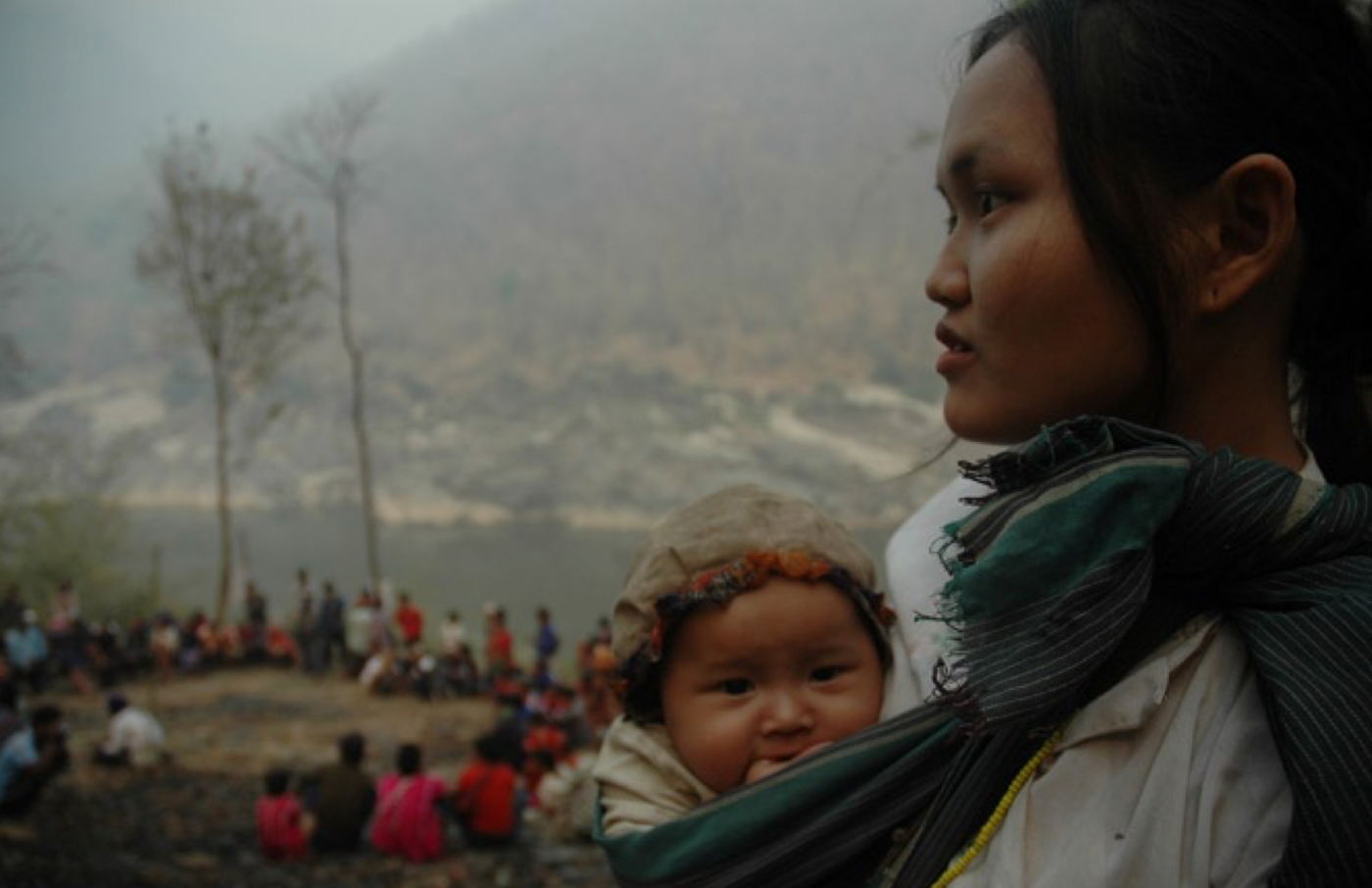The COVID-19 Pandemic Makes Vulnerable Groups More Vulnerable in the Mekong Region (3): Barriers to Women’s Access to Water, Sanitation and Sanitation Services

In our second article in this series, we look at why the gender division of labor in paid labor increases both the risk and financial pressure for women to contract COVID-19. In this issue, we take a look at how women gain and control resources during the COVID-19 pandemic. , what are the barriers to access to water, sanitation and sanitation services and mobility.
Women's limited access to and control over resources
In Cambodia, both men and women can inherit property, but intersecting factors such as age and wealth determine women's status and access to resources. Older women, divorced women, separated women, widowed women, urban women, women with higher education, women with savings have greater financial control over the assets they own. The level of control over household economic resources is critical for women, and if they become infected with COVID-19, this may determine their ability to seek medical care for themselves or their children, as well as their ability to deal with other needs arising from the pandemic Way.
Interviews with leaders of Vietnam's Village Savings and Loans Association (VSLA) highlighted the link between savings and unpredictable employment resulting from the crisis. Between January and April 2020, the amount of money borrowed by members increased significantly compared to the same period in 2019. The VSLA leader in Dien Bie, Vietnam highlighted that while the need for members to borrow money from VSLA has increased, the fund has effectively supported the lives of rural and urban women during the crisis: “Many members want to borrow money , but we didn't have enough money and had to split the loan into smaller amounts so everyone in need could get a loan. This fund was very useful, although the amount was small, it helped to share the short-term difficulty."
In Cambodia and Laos, VSLA members are temporarily unable to meet due to social distancing restrictions. The recession also left them unable to repay their loans. VSLA in Myanmar faces similar challenges.
Access to Water, Sanitation and Sanitation Services (WASH)
Frequent hand washing (along with social distancing) has been identified by the World Health Organization as an important COVID-19 prevention strategy, with support from governments, UN agencies, NGOs, civil society organisations and healthcare workers. While handwashing is central to preventing COVID-19, coverage of basic water, sanitation and sanitation varies across the Mekong region (66% in Cambodia; 50% in Laos; 79% in Myanmar; 84% in Thailand; 86% in Vietnam). The Mekong drought has particularly affected Vietnam and Thailand and is likely to exacerbate the lack of basic water, sanitation and sanitation.
Certain groups of people have particular difficulties accessing adequate water, sanitation and sanitation. In rural areas, for example, the coverage of water, sanitation and sanitation is much lower (in Myanmar, 92% of urban water, sanitation and sanitation and sanitation and 74% of rural; 88% of Cambodian urban, 60% of rural %; 93% in urban Vietnam and 82% in rural areas).
In Myanmar, the water, sanitation and sanitation cluster coordinator and six key informants (four women, two men) reported water scarcity, making it more difficult for men and women living in these areas to wash their hands frequently. A 25-year-old female entertainment worker in Mandalay said she had to buy water and limit her consumption. This highlights that marginalized groups are disproportionately affected - they do not have the social and economic resources to deal with water scarcity.
In Laos, respondents observed some changes since Covid-19: both men and women have increased their knowledge of hygiene and sanitation and are taking action to maintain a clean living environment and improve hygiene; boys tend to receive guidance from their parents to improve their personal hygiene Hygiene; girls often play a dual role, requiring both parental care and taking care of other children through housekeeping.
The promotion of hygiene and hand washing inadvertently increases the workload of women and girls responsible for fetching water and maintaining household and personal hygiene. This is especially true in rural areas where water infrastructure is lacking, and they may have to travel long distances to get water. The journey to fetch water can also put women and girls at risk of gender-based violence.
Physiological differences, such as menstruation and gender norms, also disproportionately burden women and girls with inadequate sanitation facilities and put them at risk of gender-based violence. Many water, sanitation and sanitation facilities also do not meet the accessibility needs of people with disabilities. These problems exist not only in rural areas, but also in informal urban areas prevalent in Mekong countries (50% in Cambodia; 31% in Laos; 41% in Myanmar; 25% in Thailand; and 27% in Vietnam). Urban slum dwellers, especially women, children, the disabled and the elderly, have difficulty in enjoying necessary water, sanitation and sanitation facilities due to lack of running water or high water prices due to practical use or safety issues. Combined with cramped living conditions and public spaces, urban slums in the Mekong region pose a huge risk of COVID-19 transmission.
There are also challenges in how women navigate their menstrual period with dignity during the pandemic. According to reports, due to social distancing and the resulting restrictions on movement and reduced income, it has been reported that women have difficulty accessing sanitary pads for their menstrual period. The social taboo on menstruation in the socio-cultural Mekong region makes it worse. In Myanmar, for example, it is believed that touching or preparing food during menstruation may bring bad luck to men and boys. Violence against menstruating women and the workload of other women in the household can increase during social distancing. These taboos may also be detrimental to caring for children, the disabled, the elderly and the sick.
Quarantine restricts women's freedom of movement
Social distancing in the Mekong region has also resulted in limited access to public spaces and services, affecting women and children's opportunities for childcare, education, livelihoods, access to health care and other services, or support from friends and family .
Men and women may travel using different modes of transport. Because transport can be critical to accessing services or maintaining livelihoods, the impact of restricted mobility for women and men during a crisis is also different. A quick gender analysis of El Niño by International Cares in 2015-16 found that many women in rural Cambodia, especially older women, had limited access to transport. Many said they feared for their safety and health when they left their villages to collect water.
Men usually travel by motorcycle. They are reported to have better coping skills than women. Also in Myanmar, poor and middle-class women have limited transportation options because men control family vehicle use. In Laos, rural women rely on men to take them around on motorcycles. In addition, rigid gender norms can undermine women's driving confidence and skills. Therefore, COVID-19 response strategies must consider access to reliable transport for different groups, especially women, and protection issues associated with transport use.
Movement restrictions imposed by the government have also had a major impact on the flow of migrants in the Mekong region. There are an estimated 3 million immigrants in the area, many of them women. For example, the closure and restrictions on the Thai-Myanmar border have adversely affected migrants returning to Myanmar. The Thai-Myanmar immigration corridor is the largest in Asia, with about 10% of Myanmar's population working in Thailand.
The Ministry of Health and Sports of Myanmar has built quarantine and isolation facilities along the border. There are reports of substandard and overcrowded living conditions there; inadequate toilet facilities that undermine the dignity of women and girls; and child protection issues. The closure and restrictions on the Thai-Myanmar border have also affected refugees, causing long delays, separation of families and disrupting their ability to seek appropriate support and protection. Government restrictions affect service delivery, limit access to health and humanitarian aid, and exacerbate multiple gender-based barriers faced by refugee women, such as exclusion, discrimination and gender-based violence.
Translated from CARE International (CARE), UN Women, UNICEF, "Rapid Gender Analysis during COVID-19 Pandemic: Mekong Sub-Regional Report: Cambodia, Lao People's Democratic Republic, Myanmar, Thailand and Viet Nam", September 2020. https://www.unicef.org/eap/reports/gender-analysis-inform-covid-19-response .
--
📣📣We have a reader group now!
Dear readers, we have recently opened a reader WeChat group on the WeChat public account. You are welcome to join!
We will share all kinds of information, articles, opinions, etc. about labor and environmental protection in the group.
Group friends are welcome to join the group to share, discuss, communicate, and make friends!
I hope that everyone will be friendly to each other after joining the group, and jointly create a small cyberspace that is progressive, rational and constructive.
(How to join the group: After scanning the QR code below to add friends, we will add you to the reader group🙌)

Like my work? Don't forget to support and clap, let me know that you are with me on the road of creation. Keep this enthusiasm together!

- Author
- More